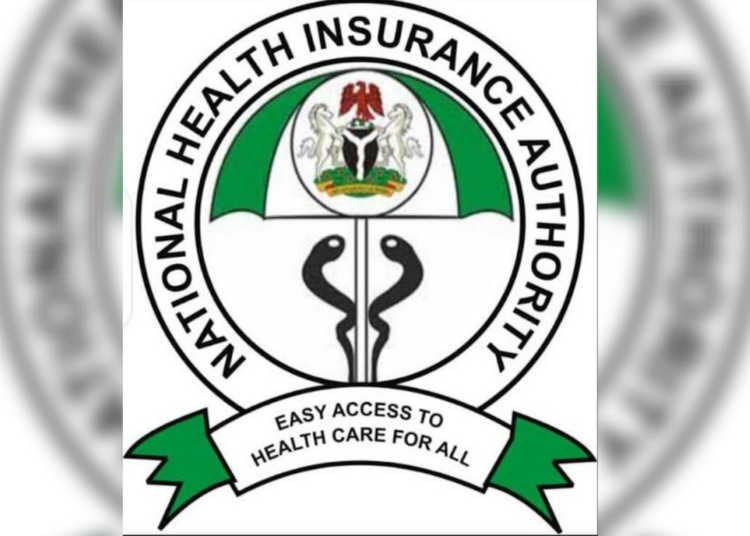Health Maintenance Organizations (HMOs) of Nigeria have decried the 20 per cent annual turnover as stipulated in the National Health Insurance Act (NHIA), even as they have called on the federal government to review the operational guidelines of the Act.
Recall that the Nigerian government signed into law the new National Health Insurance Act (NHIA) 2022 on 19 May 2022. The NHIA replaced the National Health Insurance Scheme Act of 1999, which failed to enrol more than 10 per cent of the population of Nigeria.
However, HMOs, under the auspices of the Health and Managed Care Association of Nigeria (HMCAN), at the annual conference and induction ceremony of the HMCAN and the Institute for Healthcare Finance and Management (IHFM) Limited, in Lagos, pointed out some lapses in the operational guidelines of the Act that could stifle their operations in carrying out their mandate.
For instance, section 15(4) of the Act states that; “A private health insurance scheme or plan shall be required as a condition for registration and licensing by the Authority to deposit with a Bank accredited by the Authority an amount of money in an interest-yielding account that the Authority shall prescribe as security for its members”.
Chairman, IHFM, Dr. Ladi Awosika said in Section 3.3.25, Sub-sections (a) – (j), the Operational Guidelines seeks to implement this requirement as a security deposit tied to a percentage (20 per cent) of the paid-up capital of the HMO or 20 per cent of annual turnover, whichever is higher, as a capital allocation mechanism for risk management.
“The authors of the Guidelines dearly have limited knowledge of the modus operandi of commercial entities. It is absurdity to a company trying to function efficiently, with 20 per cent of its turnover locked away, whilst four per cent of the same turnover is deducted up-front,” he posited.
Awosika observed that the paid-up capital of the HMO has no direct relationship with the health risk profile of a private health insurance scheme and it should not be used as a lever to hedge the risk of failure of the private health insurance scheme.
Should the NHIA decide to use the capital base, then it should not be by an arbitrary 20 per cent of paid-up capital, the chairman said, adding that, the method is valid only if it is tied in an actuarially determined way to the risk profile of the health insurance scheme and its carrier, the HM0.
“The NHIA should not just state a security deposit requirement through a black box approach where the stakeholders are not privy to the mechanism of the determination. Since the Act provides for a mandate to review the level of the security deposit, it cannot be stated arbitrarily. There must be transparency on which risk management and actuarial methods are used in determining it using a white- box approach,” he further explained.
Health Insurance is a mathematically designed product in terms of risks. Such issues as statutory reserving require the engagement of available and defendably sound actuarial science and risk management methodologies, the chairman stated, even as he revealed that one way to do this is through an appropriate Risk-based Capital requirement, which is a statutory minimum level of capital that is based on the size of membership of the HMO and the inherent riskiness of its assets and operations.
“Another way may be the innovative use of Value-at-Risk methodologies. The NHIA should provide an actuarial white paper on how important regulatory aspects like security deposit requirements were arrived at. This is the global best practice among regulators of health insurance. Solvency and Liquidity Ratios, which are the Insurance Industry metric of viability and sustainability are more meaningful measures than Statutory Deposits. Solvency relates to the surplus of assets over liabilities, whilst Liquidity relates to the ability of a company to pay debts as they fall due in the ordinary course of business for a period of 12 months.
“Clarification will need to be made as to whether the HMO is free to place the deposit in higher- yielding vehicles within the designated banks rather than mere deposit accounts. The deposit should still be subject to the HMO’s treasury management activities since the Act in Section 15(8) sees it as the asset of the private health insurance scheme.
“A reduction of the Security Deposit to five per cent of Paid-Up Share Capital, is hereby proposed. This should be combined with the more realistic, scientific and evidence-based measures of business viability described above,” he argued.
Another issue raised by HMOs is the four per cent Remittance to NHIA. The Operational Guidelines under Obligations of HMOs to NHIA states in Section 2.9.7 (f) on page 32 that: “Remit four per cent of all the premiums collected from private health insurance to the NHIA quarterly.”
According to Awosika, no regulator of insurance (or any other regulator in any other industry) requires the operators to remit four per cent of their hard-earned Revenue to it, adding that, globally, profit margins for health insurance companies are in the range of one to five per cent of Premium Income; a remittance of four per cent is therefore unworkable.
“It is ludicrous, for NHIA to expect such a punitive remittance, in a duly incorporated business, where it did not provide capital as an investor, to require a return that may even be higher than the profit margin of most private health insurance businesses. This is reminiscent of unbridled and unprecedented rent seeking, or a design to make BMOs fail, ab initio,” he lamented.
He however advocated for a one per cent Remittance on Private Sector Health Insurance, adding that it is a more manageable requirement and it is what obtains presently. This figure should be maintained.
Other issues in the NHIA raised by HMOs, that need amendment are mandating a medical loss ratio of 70% (Guidelines Section 2.9.5 (f) page 31); Operational Requirements for Zonal and Branch Offices; the law that states that those who determine Premiums must bear the Risk, restriction of HMOs to NHIA Accredited Healthcare Facilities (Section 3.1.14 (f) pg . 72 of the Guidelines) and frequency of re-accreditation of HMOs (Guidelines Section 3.1.15), among others.
To Awosika, the NHIA Guidelines as currently published are manifestly unfair to stakeholders in the industry, and are inimical to the practice of private health insurance. “We are convinced that the Nigerian Regulator should leave the business of private health insurance solely to the private sector, without competing with the same HMOs it is supposed to be regulating, on an unfair basis,” he added.
On her part, the president, healthcare federation, Nigeria, Dr Pamela Ajayi, said the Nigerian government needs to acknowledge the importance of the HMOs in achieving UCH for all Nigerians irrespective of where they are.
“HMOs have been able to provide about 70 per cent of the health care needs of Nigerians in some states. The government should look at ways to enable the private sector (HMOs) to do more. We should begin to talk about Public Private Integration. The issue should not be how to take the job of providing quality healthcare services from the HMOs.
“We know the government cannot do it all, hence the reason the HMOs have stepped in to deliver the service. The government should start to think of working with them to improve the health insurance scheme in the country, thereby improving the quality of life of all Nigerians,” Ajayi advised.




